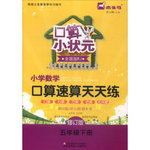题目内容
【题目】阅读短文,并按照题目要求用英语回答问题。
Papa, as a son of a dirt-poor farmer, left school early and went to work in a factory, for education was for the rich then. So, he was determined that none of his children would be denied (拒绝) an education.
Thus, Papa insisted that we learn at least one new thing each day. And dinner time seemed perfect for sharing what we had learned. We would talk about the news of the day; no matter how insignificant, it was never taken lightly. Papa would listen carefully and was ready with some comment, always to the point.
Then came the moment—the time to share the day’s new learning.
Papa, at the head of the table, would push back his chair and pour a glass of red wine, ready to listen. “Felice,” he’d say, “tell me what you learned today.”
“I learned that the population of Nepal is ....” Silence.
Papa was thinking about what was said, as if the salvation (拯救) of the world would depend upon it.
“The population of Nepal. Hmm. Well….” he’d say. “Get the map; let’s see where Nepal is.” And the whole family went on a search for Nepal.
This same experience was repeated until each family member had a turn. Dinner ended only after we had a clear understanding of at least half a dozen such facts.
As children, we thought very little about these educational wonders. Our family, however, was growing together, sharing experiences and participating in one another’s education. And by looking at us, listening to us, respecting our input, affirming (肯定) our value, giving us a sense of dignity, Papa was unquestionably our most influential teacher.
Later during my training as a future teacher, I studied with some of the most famous educators. They were imparting (传授) what Papa had known all along—the value of continual learning. His technique has served me well all my life.
【1】What did the author’s father think of his children’s education? (no more than 10 words)
【2】What does the underlined word “it” in the second paragraph refer to? (no more than 2 words)
【3】What did the author and his papa talk about at dinner time? (no more than 15 words)
【4】What has served the author well all his life? (no more than 8 words)
【5】What do you think of the author’s father? (no more than 15 words)
【答案】
【1】Papa would let all his children get an education.
【2】The news.
【3】The author talked with his papa about what he had learnt in a day.
【4】The value of continual learning.
【5】The author’s father was a good parent insistent on his children’s education.
【解析】
这是一篇记叙文。文章讲述了家境贫寒的父亲,人穷志不穷,因此很重视让孩子接受教育,并利用家庭这一平台让孩子学到很多东西,让他们终身受益。
【1】细节理解题。由第一段最后一句“So, he was determined that none of his children would be denied (拒绝) an education.”可知,所以,他下定决心,他的孩子们不会被剥夺受教育的权利,所以父亲会让他所有的孩子接受教育。故答案为Papa would let all his children get an education.
【2】指代猜测题。it语法用途之一,就是指代上文已提及过的事情。由第二段中的句子“We would talk about the news of the day; no matter how insignificant, it was never taken lightly.”可知,我们会谈论当天的新闻,不管多么微不足道,都不会对它掉以轻心,所以it在此指代的是上文中的the news。故答案为The news.
【3】细节理解题。由第四段中的句子“tell me what you learned today.”告诉我你今天学了什么、后面有关当日所学尼泊尔知识的探讨和倒数第三段中的句子“Dinner ended only after we had a clear understanding of at least half a dozen such facts.”在我们清楚地了解了至少一半这样的事实之后,晚餐才结束。可知,晚餐时间作者和父亲会谈论当天所学知识。故答案为The author talked with his papa about what he had learnt in a day.
【4】细节理解题。由最后一段中的“They were imparting (传授) what Papa had known all along—the value of continual learning. His technique has served me well all my life.”可知,爸爸一直传授的the value of continual learning(持续学习的价值),这项技能使作者终生受益,所以是the value of continual learning。故答案为The value of continual learning.
【5】推理判断题。由由第一段最后一句“So, he was determined that none of his children would be denied (拒绝) an education.”所以,他下定决心,他的孩子们不会被剥夺受教育的权利。和最后一段中的“They were imparting (传授) what Papa had known all along—the value of continual learning. His technique has served me well all my life.”他们在传授爸爸一直都知道的东西——不断学习的价值。他的技巧使我受益终生。由此判断出,作者的爸爸是一位坚持孩子教育的好家长。故答案为The author’s father was a good parent insistent on his children’s education.
词义猜测是应用英语的重要能力,也是高考中必考的题型。它不但需要准确无误地理解上下文,而且要有较大的泛读量,掌握或认识较多的课外词汇。做这种类型的技巧之一:要根据词、词组、句子所在的语境上下文来判断其意义,即有时短文中出现一个需要猜测其意义的词或短语,上文或下文接着出现其定义或解释,这就是判断该词或短语意义的主要依据。命题者在出这类题时惯用常规词义来麻痹考生,我们要特别注意熟词生义,切不可脱离语境主观臆断。如在第2小题中,猜测it的指代意义,由第二段中的句子“We would talk about the news of the day; no matter how insignificant, it was never taken lightly.”可知,我们会谈论当天的新闻,不管多么微不足道,都不会对它掉以轻心,因为it指代上文已提及过的事情,所以it在此指代的是上文中的the news。故答案为“The news.”。

 口算小状元口算速算天天练系列答案
口算小状元口算速算天天练系列答案